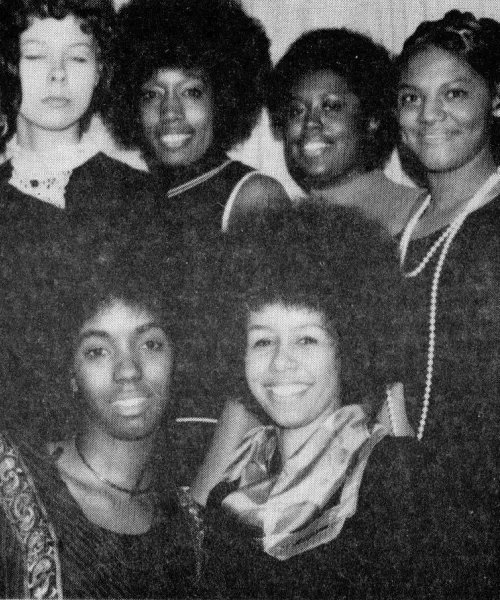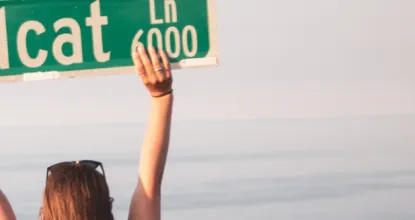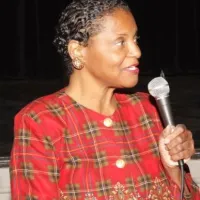
A conversation with Adelaide (Sims) Banks ’74 BS
Excerpts from an online interview with NMU’s Rebecca Tavernini and Marcus Robyns, October 2020.
Watch the NMU Archives for an upcoming Oral History project with Ms. Banks.
Addi is shown on top right as president of NMU's chapter of Beta Iota, a branch of Alpha Kappa Alpha, the sorority in which Vice President Elect Kamala Harris was a member at Howard University.
How can Black history be better integrated into K-12 and higher education?
It is imperative. We relate to others not as individuals but as representations of the group they belong to. We all do that. When we interact with someone we don’t know, everything we have been taught about that group represents them. In a multicultural, multi-ethnic class system, it is imperative that we learn about the people that we’re interacting with in a way that we can love, respect and do no harm to them.
How do we do that? We begin by teaching a true history. By a true history, I mean yes, slavery; yes, Jim Crow. But if you stop there, you haven’t taught history.
When you incorporate true history, then you will read about the bonding of Black, white and Native American people who built a great America together. You will learn about the Black people who became part of the Upper Peninsula population early in the history. You will learn about groups and appreciate them—like in Gwinn, where I attended high school and am embraced like a sister. Their heritage is Polish, German and English—yet we have more in common than not. We can build on that to create a more equal and loving society. It is critical that we know the full history of racial cooperation. We have to get out of this mindset and hate vs. hate.
My grandfather in rural North Carolina shared one suit of clothes with his white neighbor—their weekend dating suit—with a white guy down the street, and they would switch weekends. We must stop just focusing on racial hate and focus on the bonding as well.
What kinds of advice do you present in your race relations workshops?
Understanding Black Americans. The movement right now is specifically defining Black Americans not by their blackness but by their heritage. As long as we look at race as skin color, we miss that race is a construct. We’re talking about something that doesn’t exist. Let’s begin with truths.
We need to consider the groups that define our heritage and our uniqueness. Some Blacks are descended from American slaves. Some come from the Caribbean, from Britain, from Africa, and others from Black American ethnic groups. We must understand that all Black people are not the same people. We own our identity and we covet it. Therefore, it is an insult for people to define us in ways that do not speak about us. As we look at differences, respect our history and try to not consolidate us under the umbrella of Blackness.
That’s one of the issues we have: Who are we? We are defining ourselves. We are rejecting the definitions that have been myths or that have been placed upon us. In my days at NMU, there was a lot of Afrocentric dress. We were finding our identity, rejecting what others called us and we looked to the motherland. I hope that today we can look to our true history for who we are. We have such a glorious history as Americans; we don’t have to borrow identity from another group.
What were the most impactful things you learned at NMU that helped in your career or stay with you today?
I began as a business student and took a sociology course. I was so impressed with the relevance of social issues discussed that I fell in love with sociology, the activism and critical issues, the search for answers to why we behave the way we do as a society. The department brought in a famous family sociologist, Dr. Harold T. Christensen, as a summer lecturer. He was so impressive and he signed one of his papers on sociology of the family for me. I still have it. I had very warm and caring professors who inspired and influenced my work.
Also, Pizzarena spoiled me. I have never had a sausage and mushroom pizza like they made!
How are you feeling about the state of things today?
Optimistic. I see positive changes in race relations. I am a Christian and I have faith in God that the direction that I take will be the direction that God orders. While I feel that I’m whistling in the wind sometimes, my God tells me to just produce, put it out there and not worry about where it falls. Whether five people read it or five million, the message is the same: the truth of love, respect and do no harm to others.
Ms. Banks lives in Durham, North Carolina, and teaches race relations and Black history workshops in person and online.
Learn more:

